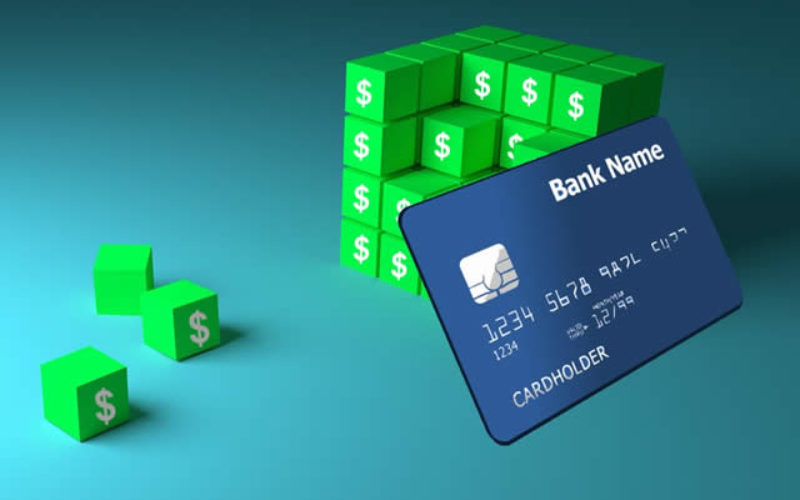Credit scores often go forgotten about through the years until consumers are ready to apply for a home or school loan.
And while you may not think credit scores are that big of a deal, even a few-point difference can make a huge impact when it comes to getting a home loan at a good rate.
Read on to discover how your credit score can affect your qualification for a home loan.
Getting a Home Loan
When you apply for a home loan, the #1 question mortgage lenders are going to ask about you is how much of a risk you are. Mortgage lenders are looking for answers to the following questions:
- How likely are you to pay back your loan?
- How much of a loan should they offer you?
- What interest rate should they offer you?
These questions are vital for the mortgage lender and you as the applicant. Depending on what they decide, you could have enough to cover the house of your dreams, or you might have to look elsewhere.
If you’re offered a reasonable rate, you could save thousands of dollars over the life of your loan, or you could be looking at thousands extra in interest. So, how do mortgage lenders answer these all-important questions?
They look at your credit score. Your credit score is going to be the single most significant determiner when a lending company decides how much they’ll offer and at what rate.
Loan-to-Value Ratio
Your credit score will determine something called the “loan-to-value” ratio. This simply means how much of a property’s sale price you’ll be eligible to borrow.
-
What does this look like practically?
Let’s say you’re looking at a beautiful little farm property in the country that will cost you a total of $200,000. You have enough for 5% down, so you’ll be paying $10,000 upfront. That means you’ll need $190,000 from a mortgage lender.
To qualify for that much of a loan, your credit score will need to be in the top bracket – an excellent rating of 750+. Any lower than that, and you’ll be looking at significant reductions in what mortgage lenders will allow you to borrow.
If you have a credit score below 700, you’ll probably only get up to 80% of the property’s worth, or $160,000. In this case, you’d be required to put down $40,000 instead of the $10,000 you have available.
If you can’t make up the difference, you’ll be forced to look elsewhere for a property that will fit within your budget and loan availability.
-
Bottom line:
If your credit isn’t great, you can still get a loan, just don’t expect a lender to hand you the full amount you’re requesting.
Your Home Loan Rate
Not only is the loan amount determined by your credit score, but the interest rate for the life of your loan is also dependent upon your score.
If a lender determines you are low risk, they will offer you the best interest rate they have. If, however, your credit score points to a moderate amount of risk for the company, they’re going to increase your interest rate to be sure they net more money in the long run in case you bailout years later.
Let’s take these average scores with their interest rates for an example.
If you acquired a 30-year fixed-rate interest loan for $200,000, these are the numbers you’ll be looking at for the life of your loan.
| Credit Score | Annual Interest Rate | Monthly Payment Due | 30-year Interest Paid |
| 760-850 | 3.40% | $888 | $119,626 |
| 700-759 | 3.63% | $913 | $128,560 |
| 680-699 | 3.80% | $933 | $135,776 |
| 660-679 | 4.02% | $957 | $144,611 |
| 640-659 | 4.45% | $1,008 | $162,380 |
| 620-639 | 4.99% | $1,073 | $186,380 |
While it may not feel like a big leap to drop from 3.40% interest to 3.63% interest, in the long run, you’re looking at paying $8,934 extra in interest over the life of your loan. Travel down to the third tier, and with a score in the 680-699 range, you’re looking at a whopping $16,150 over the life of your loan.
Unless you have multiple thousands to kiss goodbye due to a poor credit score, it’s vital to get it as high as you can before you apply for a home loan.
Private Mortgage Insurance
If you find yourself paying less than 20% down for the price of your property, your mortgage lender will require you to purchase private mortgage insurance to go along with your loan. This is a form of insurance that will pay out to the mortgage lender in case you declare bankruptcy and can’t pay it back.
As with everything else in this article, the better your credit score, the better premium you’ll have for your insurance payments. The lower your score, the more you’ll pay to the insurance company, in addition to interest on your loan.
other valuable tips:
Making Sense of Your Cents With Credit Scores and Credit Reports
Improve Your Credit Score
The amount of your loan, the interest you pay, and your insurance premiums are all tied to your credit score. Needless to say, it’s vital to maintain a good score. Are you ready to apply for a home loan? Or will you take some time to raise your score a few points?
Image Credit: by Pixabay
end of post … please share it!
GUIDE: getting qualified for mortgage loan
end of post idea for home improvement
view and analyze home improvement ideas at our LetsRenovate center
Helpful article? Leave us a quick comment below.
And please give this article a rating and/or share it within your social networks.












